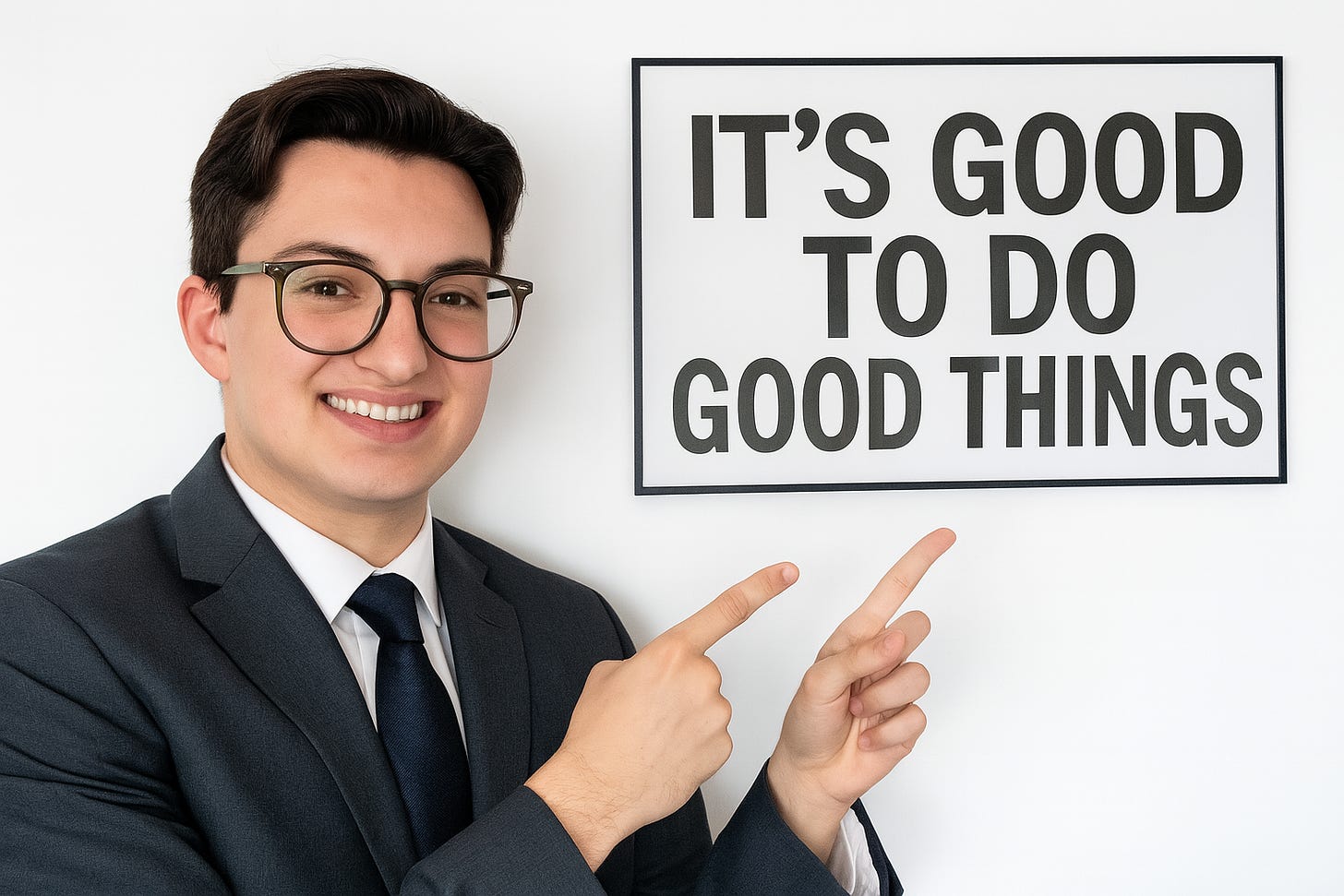It’s good to do good things.
It’s bad to do bad things.
It’s more good to do more good things.
It’s more bad to do more bad things.
It’s most good to do the most good things you can do.
It is easy to underestimate the amount of good you can do. With enough concerted effort over a long enough time period, you can genuinely change people’s lives – possibly many people’s lives.
It’s good to be happy, and it’s bad to be depressed.
Happiness is contagious: visibly happy people tend to raise the moods of everyone around them.
Depression is contagious: visibly depressed people tend to dampen the moods of everyone around them.
You should aspire to be the happiest version of yourself, not only for your own wellbeing, but for the wellbeing of everyone around you.
Feeling guilty about your depression will only make you more depressed, which will help neither yourself nor the people around you. Try your best to overcome depression if it afflicts you, but do not beat yourself up if you cannot.
It’s good to be strong, smart, healthy, and beautiful.
It’s bad to be weak, stupid, sick, and ugly.
Denying that some people are stronger, smarter, healthier, or more beautiful than others is not equity; it is dishonesty.
This does not mean you should be disrespectful toward those who are weak, stupid, sick, or ugly.
We should help each individual to become the strongest, smartest, healthiest, and most beautiful version of themself, and we should have compassion for all those who fall short.
Altruism is self-reinforcing.
When you help others, you will get used to helping others.
When you help others, you will get better at helping others.
When you enter a community of altruists, you will be socially rewarded for becoming even more altruistic.
When you define your personal identity as someone who helps others, you will be more likely to help others.
Misanthropy is self-reinforcing.
When you hurt others, you will get used to hurting others.
When you hurt others, you will get better at hurting others.
When you enter a community of misanthropes, you will be socially rewarded for becoming even more misanthropic.
When you define your personal identity as someone who hurts others, you will be more likely to hurt others.
While fear, anger, and even spite can sometimes be useful, you should not let these negative emotions control you.
If you base your ideology on attacking the things you hate, then over time you will become a more hateful and unhappy person.
If you base your ideology on promoting the things you love, then over time you will become a more loving and happy person.
You should form communities based on common values, not common enemies.
Being overly cautious or overly reckless are both vices, and will lead to poor life outcomes. Learn when it is appropriate to take risks, and when it isn’t.
Being overly conformist or overly confrontational are both vices, and will lead to poor life outcomes. Learn when it is appropriate to state an unpopular opinion, and when it isn’t.
“Free will” is largely illusory. Your life outcomes will be created by random chance more than by anything you can control.
Nonetheless, those who believe in their own free will and take responsibility for their own lives tend to have far better life outcomes than those who do not.
It’s easy to publish aphorisms on the internet.
It’s difficult to apply those aphorisms in a productive way in the real world.





This is an outrage! Spread the word. We must stop Orangemanbad from spending $10 million on this car.
https://planetfubar.substack.com/p/trump-has-gone-too-far-this-time
Retard fag